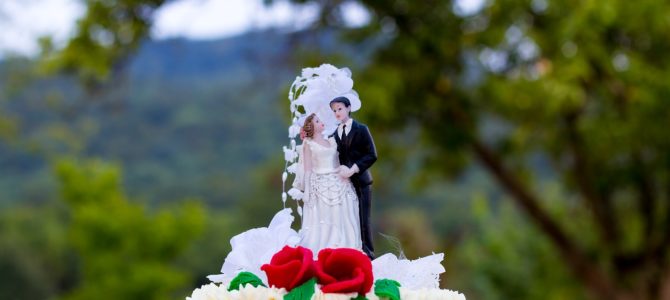
Are flowers just flowers? Or can they be a statement celebrating the sexual orientation of a couple getting married? Believe it or not, this may be the most important question the Washington Supreme Court will consider in Arlene’s Flowers v. Washington, which the U.S. Supreme Court just sent them for reconsideration in light of SCOTUS’s recent decision in Masterpiece Cakeshop vs. Colorado Civil Rights Commission.
In Masterpiece, baker Jack Phillips refused to sell a cake to a same-sex couple because his religion objects to their marriage. The couple sued Phillips, and Colorado fined him for discriminating on the basis of sexual orientation.
The Supreme Court reversed 7-2 because some of the Colorado commissioners expressed animus toward Phillips’s religious beliefs by “disparaging” (the court’s word) them as “one of the most despicable pieces of rhetoric that people can use to . . . hurt others,” and even compared “Phillips’ invocation of his sincerely held religious beliefs to defenses of slavery and the Holocaust.” In the end, Justice Anthony Kennedy, writing for the court, found that the “Commission’s hostility was inconsistent with the First Amendment’s guarantee that our laws be applied in a manner that is neutral toward religion.”
By relying on animus, the court managed to avoid all the more interesting clashes of constitutional rights, with free speech and free exercise of religion on one side against equal protection on the other. No doubt these issues will arise in cases like Arlene’s Flowers, in which a vendor refused to sell flowers for a same-sex couple’s marriage for religious reasons. These cases must now be considered in light of Masterpiece.
Had the commission not made anti-religious comments, the Supreme Court opinions show four votes (Ruth Bader Ginsburg, Sonia Sotomayor, Elena Kagan, Stephen Breyer) solidly in favor of the commission. While Samuel Alito, Neil Gorsuch, and Clarence Thomas disagreed, we don’t know whether Kennedy or John Roberts might swing the next case in the liberal wing’s direction, against the vendor.
For now, since Kennedy’s majority opinion left to the one dissenting and three concurring opinions to hash out the thorny issues, the Washington Supreme Court will have to look there for guidance in Arlene’s Flowers, assuming this case did not involve the animus that doomed the Colorado Commission.
Ginsburg and Kagan, for example, tussled with Gorsuch over the definition of the cake that Phillips refused to sell. Was it “a cake celebrating a same-sex marriage,” as Gorsuch insisted? This narrow definition of the cake would absolve Phillips, who would not sell such a cake to anyone, whether heterosexual or homosexual. Phillips’s refusal under this standard would not be discriminating on the basis of the customers’ sexual orientation.
Or was it “simply a wedding cake”? This broader definition would condemn Phillips, who would sell such a cake only to some customers. Phillips’s refusal under this standard would be discriminating on the basis of the customers’ sexual orientation, wrote Kagan and Ginsburg.
Who is right? In a sense, the definition of “cake” is in the eye of the beholder. The dueling justices masterfully framed the definition from competing perspectives. For example, Ginsburg argued for the broad definition by effectively speaking from the perspective of the same-sex couple: “When a couple contacts a bakery for a wedding cake, the product they are seeking is a cake celebrating their wedding – not a cake celebrating heterosexual weddings or same-sex weddings.”
Gorsuch in turn posited the narrow definition when he spoke from the perspective of the baker: “Phillips explained that he could not prepare a cake celebrating a same-sex wedding consistent with his religious faith.”
This is no mere semantic exercise, but a legal question that must be answered to resolve many important cases across the country. Without principled guidance on this question, we may be tempted to shrug our shoulders and defer to the arbitrary standard of any (neutral!) state commission. That is, each state may come up with its own standard. Even Gorsuch hinted this might be acceptable.
But Gorsuch did propose a principled answer: according to Supreme Court jurisprudence “over many years,” the believer is “entitled to define the nature of his religious commitments – and that those commitments, as defined by the faithful adherent, not a bureaucrat or judge, are entitled to protection under the First Amendment.”
The believer’s view is central for Gorsuch: “To some, all wedding cakes may appear indistinguishable. But to Mr. Phillips that is not the case – his faith teaches him otherwise.” This is because a long line of cases would cause the Supreme Court to refuse to “suggest that for all persons sacramental bread is just bread or a kippah is just a cap,” just as the court here should refuse to tell “Phillips that a wedding cake is just like any other” even if Phillips’s views were idiosyncratic.
Addressing Gorsuch directly, Kagan asserted, “a wedding cake does not become something different whenever a vendor like Phillips invests its sale to particular customers with ‘religious significance.’” But in support, Kagan cited Supreme Court precedent that merely affirmed the kind of law at issue in this case despite conflicting religious convictions.
Unfortunately, such a holding would do Kagan no favors, since Gorsuch already agrees. His point was that religious convictions get to define the scope of “cake” before such laws are even applied to regulate the exercise of religion. There appears to be no viable rebuttal in Cakeshop Masterpiece to his point.
So much for “cake.” The Washington Supreme Court now takes up Arlene’s Flowers and will likely have to decide whether “bouquet” is in the eye of the beholder, and which beholder’s eye matters more under the law. Its answer may determine the case.









